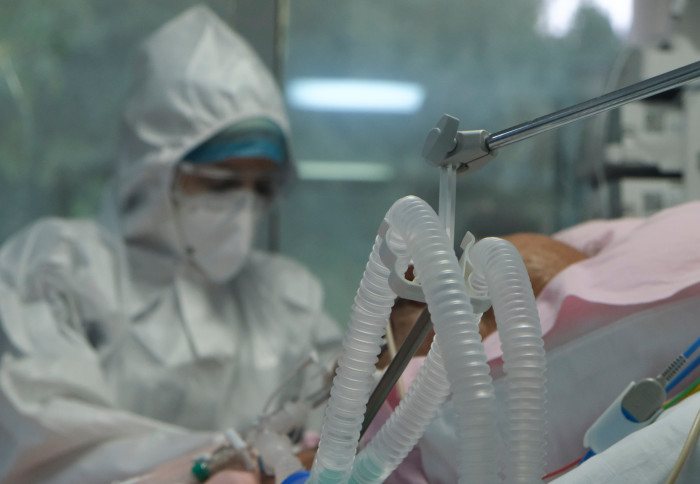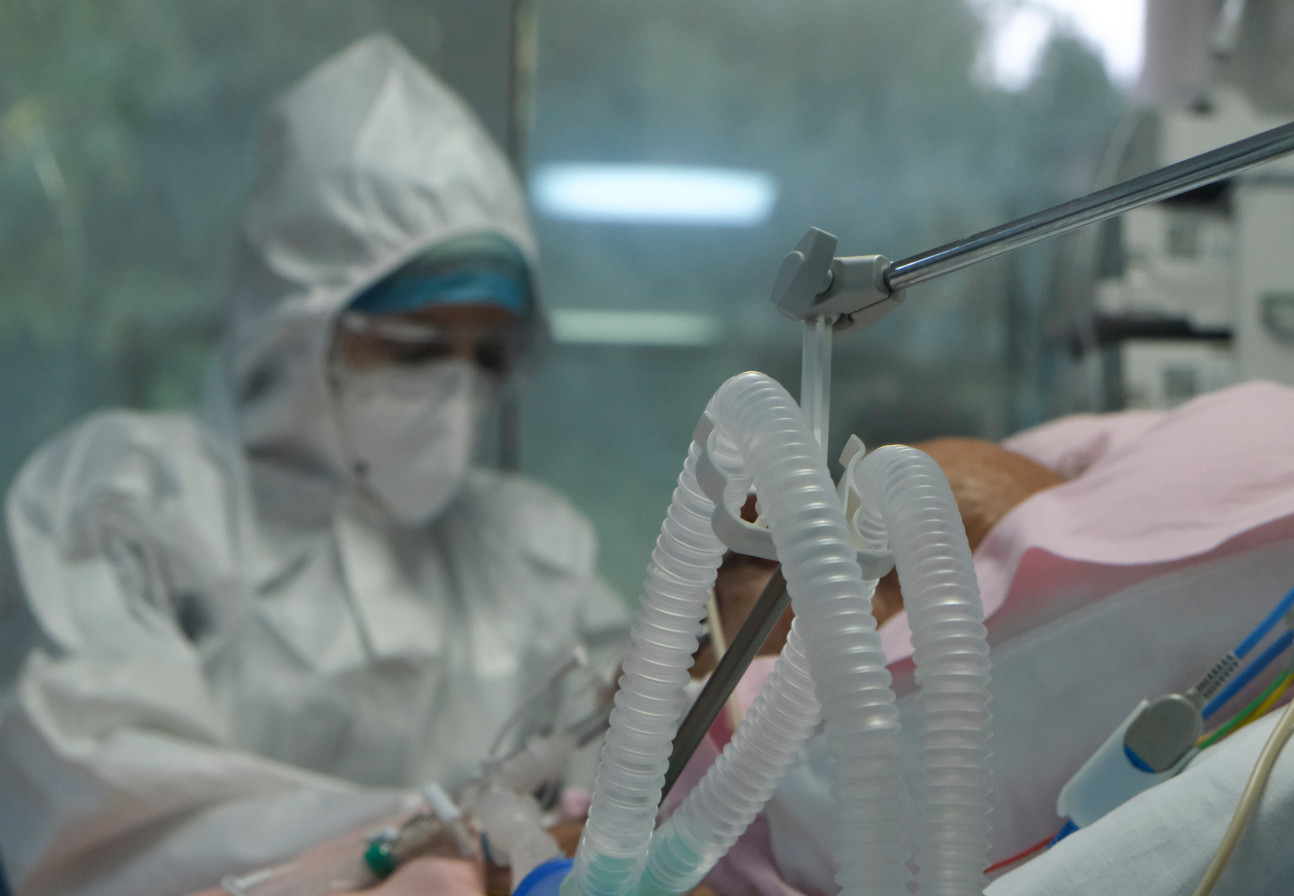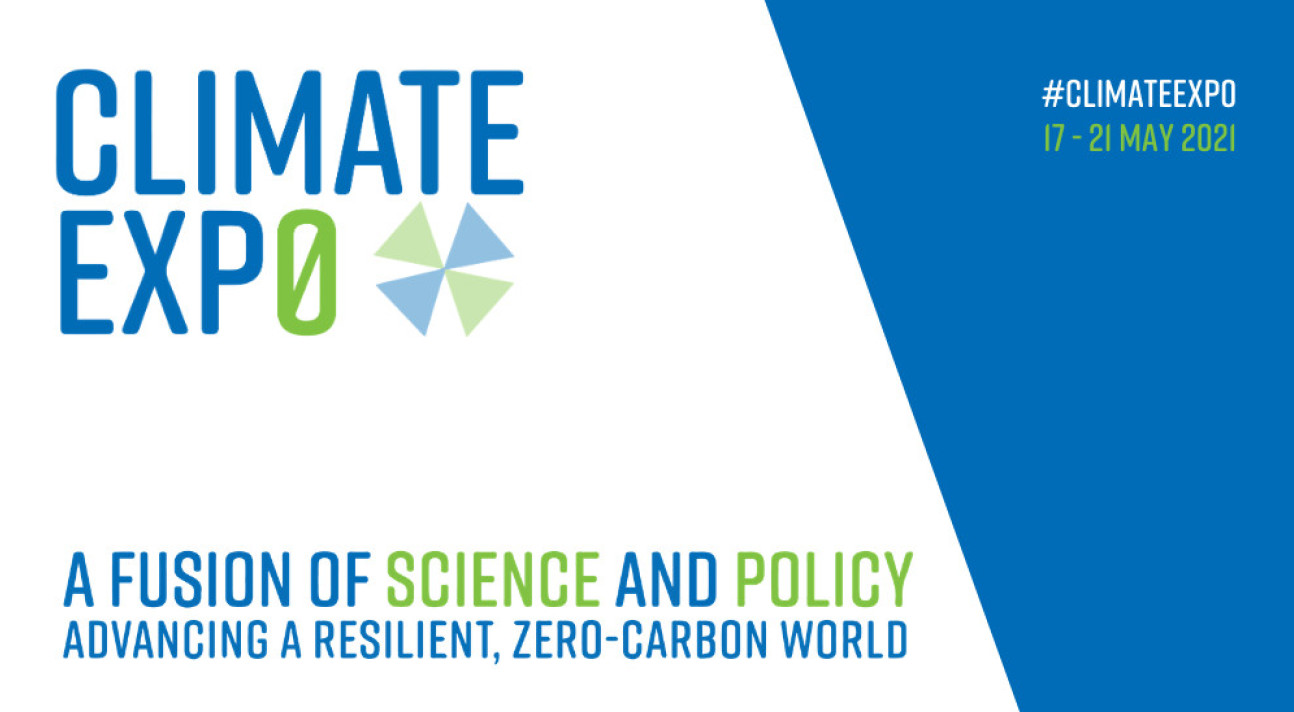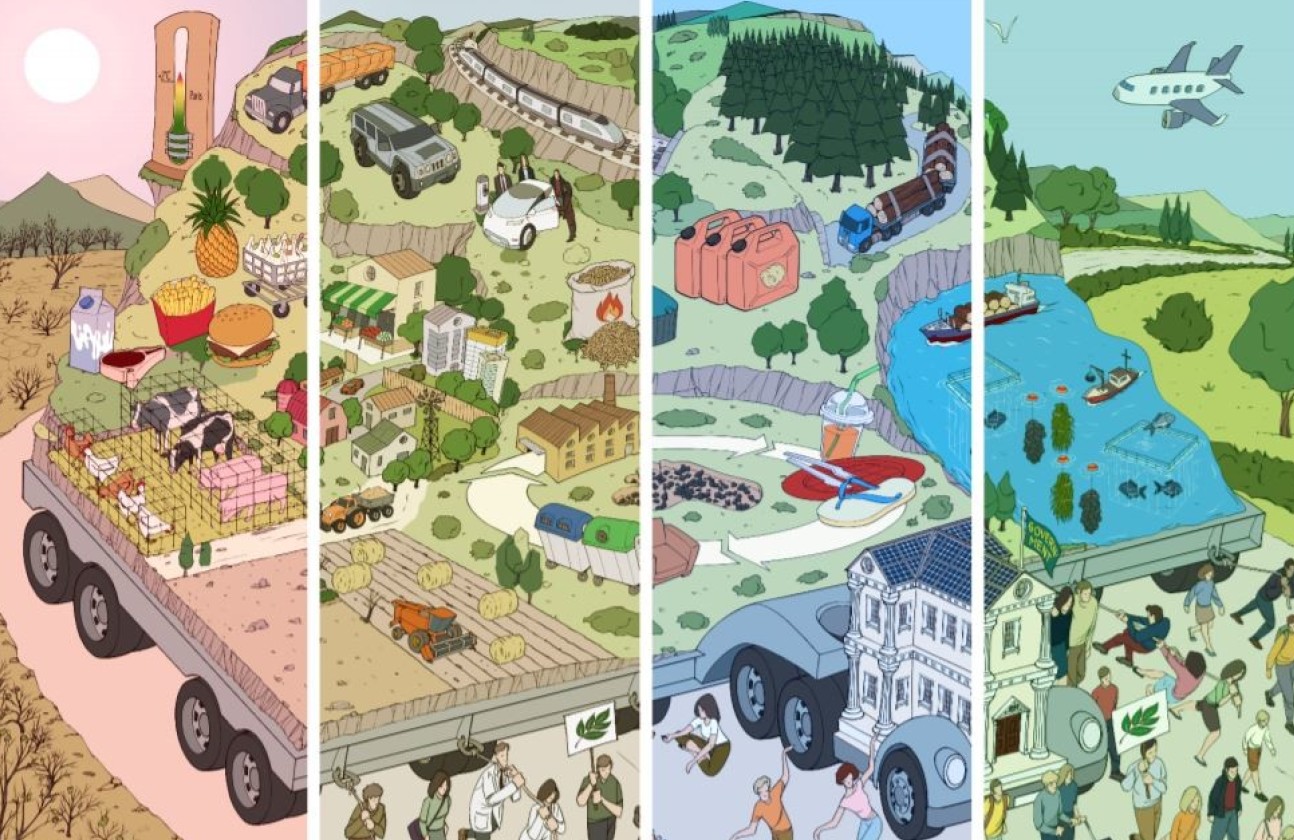Pandemic mortality and prevention: News from the College

Here’s a batch of fresh news and announcements from across Imperial.
From a study into excess mortality during the COVID-19 pandemic, to new ways to prepare and respond to health crises, here is some quick-read news from across the College.
Beyond excess mortality
 Imperial’s Dr Jonathan Clarke, Professor Azeem Majeed and Dr Thomas Beaney published an editorial in the British Medical Journal about a study on excess mortality during the COVID-19 pandemic in 29 high-income countries.
Imperial’s Dr Jonathan Clarke, Professor Azeem Majeed and Dr Thomas Beaney published an editorial in the British Medical Journal about a study on excess mortality during the COVID-19 pandemic in 29 high-income countries.
Because countries record COVID-19 deaths differently, excess mortality has been suggested as a better measure of the impact of the pandemic. This is the number of ‘extra’ deaths a country records compared to what might be expected.
However, the Imperial team note excess deaths cannot tell the whole story of the pandemic, and longer-term impacts like ‘long covid’, the knock-on effects of delays in treating conditions like cancer, and the deepening of inequalities in countries like the UK.
The authors write: “An urgent need exists to measure this excess morbidity, support people with long term complications of COVID-19, and fund health systems globally to tackle the backlog of work resulting from the pandemic.”
Read more in the British Medical Journal: “Measuring the impact of covid-19”
Climate Exp0 reflections
 Last week Climate Exp0 saw more than 5,200 people in 150 countries convene virtually for a five-day conference to discuss the role of research and academia in supporting the 26th UN Climate Change Conference (COP26) to be held in Glasgow later in 2021.
Last week Climate Exp0 saw more than 5,200 people in 150 countries convene virtually for a five-day conference to discuss the role of research and academia in supporting the 26th UN Climate Change Conference (COP26) to be held in Glasgow later in 2021.
The Rt Hon Alok Sharma, COP26 President, and Roberto Cingolani, Italian Minister for Ecological Transition, made clear the case for action and how academics can support the COP26 Goals. “A carbon-free future will be achieved through a multitude of scientific and policy innovations and collaborations across government, industry and universities,” wrote the co-chairs of the conference, including Alyssa Gilbert from Imperial’s Grantham Institute, in Times Higher Education.
Over 700 live and pre-recorded conference presentations will be freely and permanently available on Cambridge Open Engage from June.
Forecasting a sustainable EU bioeconomy
 The 2018 EU Bioeconomy Strategy aims to develop a circular, sustainable bioeconomy for Europe, which means using biotechnology and biomass in the production of goods, services, or energy.
The 2018 EU Bioeconomy Strategy aims to develop a circular, sustainable bioeconomy for Europe, which means using biotechnology and biomass in the production of goods, services, or energy.
Researchers at Imperial have contributed to a key report for the Strategy, analysing four scenarios for the future EU bioeconomy until 2050. They assessed the likelihood of each scenario reaching the Paris Agreement goals for limiting global heating, and of creating fundamental societal change towards sustainable consumption.
The scenarios follow four styles of policy, including proactive, integrative, societal action and reactive, and presents reflections on the pathways these scenarios present. It also shares insights for the future of the bioeconomy in Europe, and abroad, with a focus on implementing a circular, sustainable, and transformative global bioeconomy.
Read the full report on the Joint Research Centre Publications Repository and watch the team present to the Committee on the Environment, Public Health and Food Safety (from 11:05).
Contrails, COVID and climate

Contrails produced by aircraft can spread out to form aviation-induced cirrus clouds. These thin, high-altitude clouds can affect the reflectivity of the atmosphere, influencing climate change. However, the impact of aviation in producing these clouds had only been estimated from models.
Now, a team from Leipzig University, Imperial, and the Institut Pierre-Simon Laplace in Paris have taken advantage of the strong reduction in air traffic triggered by the COVID-19 pandemic to quantify the effect of aviation-induced cirrus clouds. In normally busy air corridors, they found a 9% reduction in cirrus cover and a 2% reduction in cirrus opacity in the period March-May 2020 compared to previous years.
The team say this new observational estimate will provide a benchmark against which future models can be compared.
Read the full paper in Environmental Research Letters: ‘Climate impact of aircraft-induced cirrus assessed from satellite observations before and during COVID-19’
Social networks, inequalities and behaviour

Imperial mathematicians in the EPSRC Centre for the Mathematics of Precision Healthcare have created a framework to investigate the interplay between a person’s socio-geographic coordinates (e.g., income, age, gender, postcode), who their friends are and their behaviour, and tested it using the results of the EU referendum and two London Mayoral elections.
Notably their method, despite using no social network data, could discover established signatures of homophily — the tendency to befriend those similar to oneself – with age and geographical separation being leading sources of friendship-discrimination.
The researchers showed how, as an alternative to directly influencing behaviour, the model can be used to explore how reducing inequalities or encouraging mixing among groups can reduce social polarization. Age is highly segregating but social policies could encourage intergenerational mixing and reduce polarization.
Read the full paper in Science Advances by Antonia Godoy-Lorite and Nick Jones: ‘Inference and influence of network structure using snapshot social behavior without network data’
Pandemic prevention
A team led by Imperial’s Dr James Kinross has been chosen as a finalist for The Trinity Challenge, a global coalition established to help the world better prepare and respond to health crises.
Dr Kinross’ proposed solution, REaltime DAta Synthesis and Analysis (REDASA) INFODEMIC, is an AI-driven information platform that will provide relevant, accurate, and timely data on treatments, preventions, and safety strategies for both patients and staff. It aims to help healthcare professionals navigate the ‘tidal wave’ of information available – from publications to social media – by collating and synthesising the best evidence that can improve patient outcomes.
The winners will be announced on 25 June, with a £6 million prize fund available for the best ideas that harness data and novel analytics to protect against future pandemics. The College is a founding member of The Trinity Challenge, whose participation is led by Prof Ara Darzi, co-director of the Institute of Global Health Innovation.
–
Want to be kept up to date on news at Imperial?
Sign up for our free quick-read daily e-newsletter, Imperial Today.

Article text (excluding photos or graphics) © Imperial College London.
Photos and graphics subject to third party copyright used with permission or © Imperial College London.
Reporter
Andrew Youngson
Communications Division
Simon Levey
Communications Division
Hayley Dunning
Communications Division
Justine Alford
Institute of Global Health Innovation